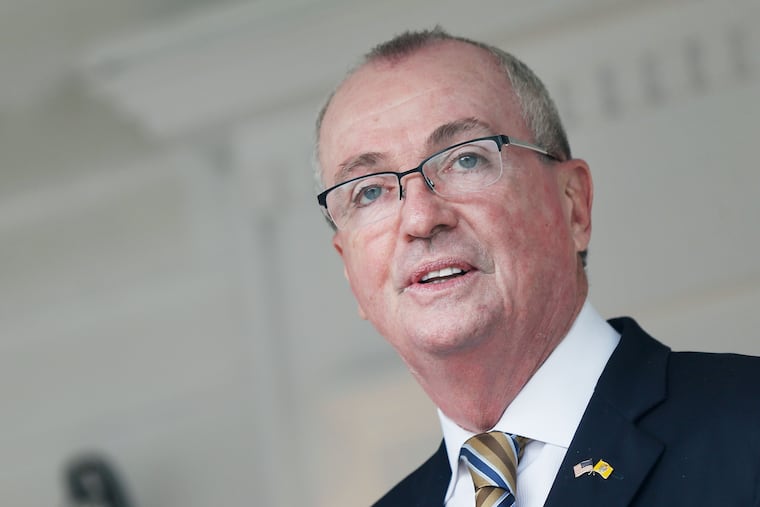N.J. passes budget, hiking taxes on rich and approving borrowing
The budget passed the Democrat-led Senate and Assembly and heads next to Democratic Gov. Phil Murphy.

TRENTON — New Jersey lawmakers on Thursday passed a $32.7 billion budget, hiking taxes on millionaires and businesses and authorizing borrowing of up to $4.5 billion to avoid painful cuts stemming from the impact of the coronavirus pandemic.
The budget passed the Democrat-led Senate and Assembly and heads next to Democratic Gov. Phil Murphy, who's expected to sign it after recently announcing an agreement with legislative leaders to raise taxes on the wealthy, while also providing taxpayer rebates of up to $500.
The budget keeps state government running through June 30, running just nine months long because Murphy and legislators cut short the fiscal year because of the COVID-19 outbreak.
It includes funding for schools, transit and public pensions, as well as more than $2 billion for the state's rainy day fund.
It also has millions for other smaller projects benefiting towns in lawmakers' districts.
The extra spending — as well as the borrowing combined with a $2 billion surplus — ignited fierce opposition from Republican lawmakers.
Republican Sen. Declan O'Scanlon wore a Christmas-themed tie to decry the spending on projects' in lawmakers' districts.
“I figured with the presents included in the budget, you might be starting the holidays a little earlier," he said.
Republican Sen. Kip Bateman called the spending plan a “train wreck,” and said the state's taxpayers were the passengers on the train since they'll be on the hook for the extra spending.
Murphy has defended the higher spending as necessary because of the economic hardships facing the state's residents because of the coronavirus outbreak.
When combined with the three-month, nearly $8 billion stopgap budget that expires on Wednesday, the fiscal year 2021 plan is about 4% bigger than the previous year.
Lawmakers included an income tax increase on those making more than $1 million a year, as well as on businesses making over $1 million.
Under the plan, people will be taxed at 10.75% on every dollar they make over 1 million, up from 8.97%. Businesses making more than $1 million currently face a rate of 10.5%. That will rise to 11.5% under the budget. The higher business tax rate would expire in four years under the budget.
Murphy and lawmakers also agreed to include rebates of up to $500 to couples making up to $150,000 with at least one dependent child and single parents with at least one dependent child making up to $75,000.
Those rebates, though, aren’t expected to go out until August 2021, a gubernatorial election year in New Jersey.
Republicans sought to stop the borrowing in the state Supreme Court recently, but were rebuffed by the court, which ruled that the state constitution permits such borrowing in unprecedented times like the current outbreak. The court, though, attached some strings, saying the money must be spent to “meet the emergency.”